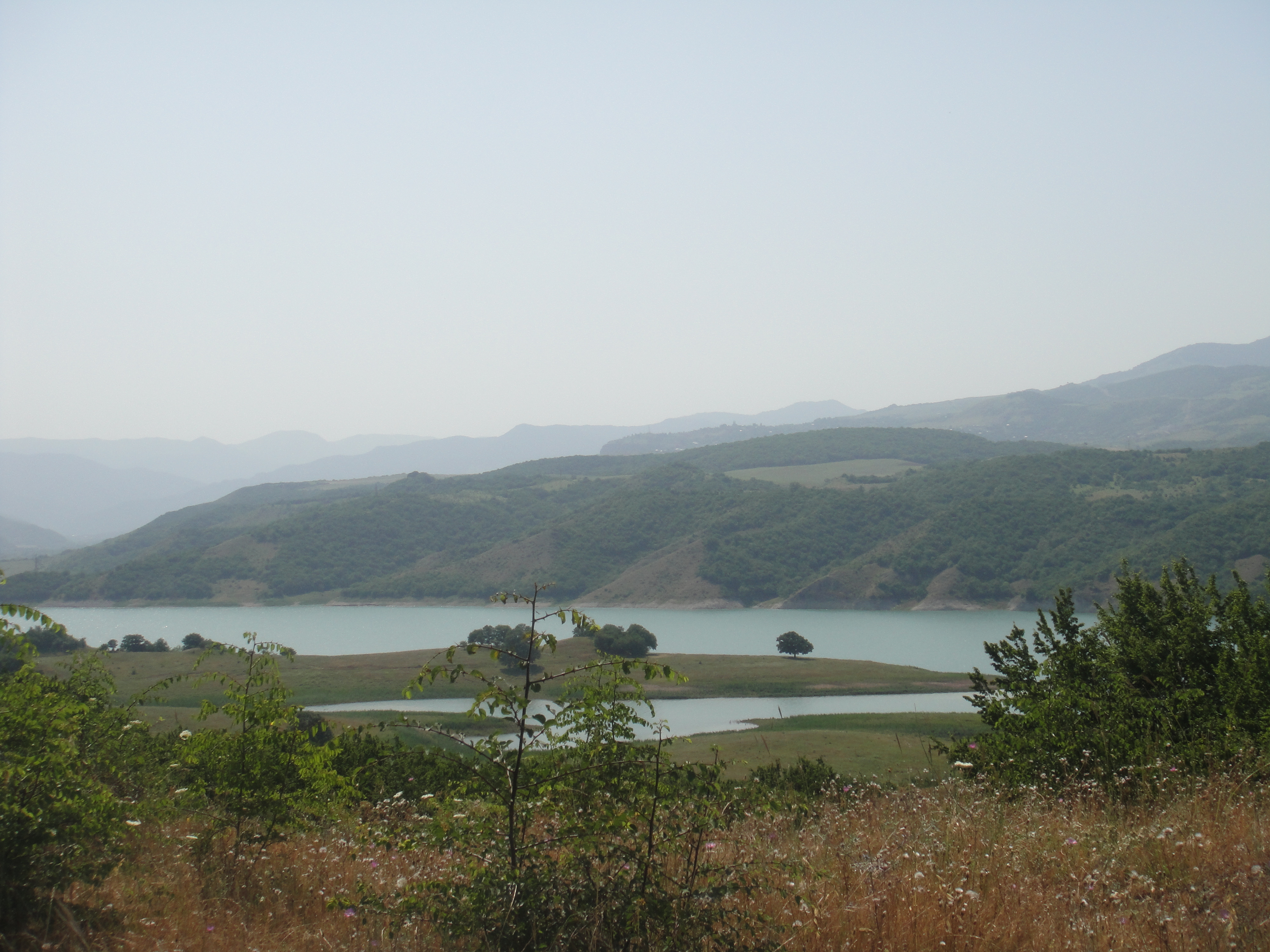Armenia turning Sarsang reservoir into weapon against Azerbaijan

By Sara Rajabova
Azerbaijani MP has lambasted Armenia for committing ecological terror against Azerbaijan.
Elkhan Suleymanov, a member of the Azerbaijani parliamentary delegation to PACE and president of the Association for Civil Society Development in Azerbaijan, said the Sarsang water reservoir is a very dangerous weapon against Azerbaijan in Armenian hands.
Sarsang, Azerbaijan’s highest water reservoir, situated 726 meters above sea level, was built on Tartar River during the Soviet times in 1976. Since 1992, the Sarsang reservoir has been under the control of the Armenian armed forces, and as a result, frontline regions have been deprived of water.
Armenia uses the water reservoir to subject the six regions downstream to flooding by releasing runoff from the reservoir in winter months, and causes serious damage to the agriculture of nearby regions by preventing water runoff in summer.
Suleymanov stated that a delegation led by Milica Markovic, rapporteur of the Parliamentary Assembly of the Council of Europe on “The inhabitants of the frontier regions of Azerbaijan who have been deliberately denied access to water” will visit again Azerbaijan again on August 24-27.
The MP told AzerTac state news agency that the delegation will tour the Azerbaijani regions under the impact of reservoir on August 26 to hold meetings with the local community and examine the impact of the reservoir on the local socio-economic situation.
Suleymanov recalled that Markovic visited Azerbaijan for the first time in December 2014. After visiting Azerbaijan, she was to visit Armenia, but the aggressor country and its supporters prevented the visit.
The MP stressed that the rapporteur's attempts to coordinate the visit to Armenia has been a failure since last October, as Armenia has yet to give its consent on this issue.
The PACE Social Affairs, Health and Sustainable Development Committee also sent an official letter to Armenia, but there was no reply.
MP from Bosnia and Herzegovina, Markovic was appointed the rapporteur on the Sarsang reservoir last May.
Armenia mobilized all resources to prevent the appointment of a rapporteur and even attempted to hinder the position at the state level.
Suleymanov went on to say that not only did Armenia, but also its supporters at PACE came out against it.
He stressed that despite all obstacles, the rapporteur was assigned and Armenia was once again declared as an occupant at the international level.
As a result of the Armenian occupation following a brutal war in the early 1990s, the frontline regions of Azerbaijan can no longer use water from the reservoir, which is currently in an emergency situation because it has not been maintained due to the occupation.
Due to the fact that the Sarsang reservoir is located in the occupied territories, the technical installations are facing danger of neglect and are in dire conditions due to lack of service.
There is a high probability that the reservoir might collapse from a natural disaster, technical reasons and deliberate sabotage.
Engineers and hydrologists have predicted that if the dam breaks down, it will flood more than 30 villages. The risk of a disaster resulting from an accident is currently very high and the lives of 400,000 Azerbaijani citizens who live in the six regions downstream are in immediate danger.
The Association for Civil Society Development in Azerbaijan started a project entitled “Sarsang - prevention of humanitarian catastrophe” in May 2013.
The purpose of the project is to inform the world community of Armenia’s systematic and continuous crimes of genocide against the Azerbaijani people, the ethnic cleansing policy carried out against the Azerbaijani people in the occupied territories, Armenia’s war crimes and crimes against humanity.
Azerbaijan and Armenia have been locked in conflict for over two decades. Armenia occupied over 20 percent of Azerbaijan's internationally recognized territory, including Nagorno-Karabakh and seven adjacent regions, after laying territorial claims against its South Caucasus neighbor that sparked a lengthy war in the early 1990s. The UN Security Council has adopted four resolutions on Armenian withdrawal, but they have not been enforced to date.
--
Sara Rajabova is AzerNews’ staff journalist, follow her on
Twitter: @SaraRajabova
Follow us on Twitter @AzerNewsAz
Here we are to serve you with news right now. It does not cost much, but worth your attention.
Choose to support open, independent, quality journalism and subscribe on a monthly basis.
By subscribing to our online newspaper, you can have full digital access to all news, analysis, and much more.
You can also follow AzerNEWS on Twitter @AzerNewsAz or Facebook @AzerNewsNewspaper
Thank you!
